|
It is commonly thought that drinking coffee makes you more dehydrated, but does the evidence support this claim? Caffeine is one of the most widely consumed substances in the world, and is found in coffee, tea, and chocolate. Many people, including both health care practitioners and the public, believe that caffeine increased urine output leading to dehydration. However, a number of studies have looked at the question in close detail. In one study from 2014, researchers looked at 50 male coffee drinkers habitually consuming 3–6 cups per day. The participants consumed either four 200mL cups of coffee containing 4mg/kg caffeine or the equivalent amount of water for three days. The results showed no change in total body water, 24-hour urine output, or blood markers of hydration between the coffee and water drinkers. Other studies tell a different story. In a study from 1997, twelve regular coffee drinkers abstained from coffee consumption for 5 days, and then drank 6 cups of coffee. This led to an increase in 24-hour urinary output and a decrease in total body water, as well as increased excretion of sodium and potassium. Another study found that coffee with high caffeine content (6mg/kg) caused an acute diuretic effect, but low caffeine coffee (3mg/kg) did not. Lastly, a literature review from 2003 concluded that "acute ingestion of caffeine in large doses results in a short-term stimulation of urine output in individuals who have been deprived of caffeine for a period of days or weeks. A profound tolerance to the diuretic and other effects of caffeine develops, however, and the actions are much diminished in individuals who regularly consume tea or coffee. Doses of caffeine equivalent to the amount normally found in standard servings of tea, coffee and carbonated soft drinks appear to have no diuretic action." Take Home MessageThe available evidence suggests that high caffeine consumption (3-6 cups of coffee) causes an acute increase in urinary output, but the effect is diminished in habitual coffee drinkers.
Bottom Line: If you drink coffee regularly, it is not likely to cause dehydration.
0 Comments
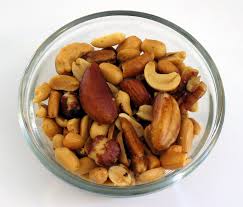 Nuts are nutrient-dense foods that are packed with protein, fiber, essential fats and many other nutrients. There have been a number of research studies that show various health benefits from consuming nuts, from decreased risk of heart disease and diabetes to lower blood pressure and fewer gallstones. But can eating nuts actually help you live longer? An article in the New England Journal of Medicine looked at the association between eating nuts and mortality rates. The authors examined data from two large population studies: The Nurses' Health Study (NHS), which has followed 121,700 women since 1976, and the Health Professionals Follow-Up Study (HPFS), which has followed 51,529 men enrolled since 1986. Participants without complete data or who had a history of cancer, heart disease, or stroke were excluded, so the final analyses included 76,464 women and 42,498 men. Dietary intake was assessed using validated food-frequency questionnaires every 2-4 years. What did they find? In a nutshell, consumption of nuts was inversely associated with mortality. The analysis found that those who reported eating nuts daily were 20% less likely to have died during the course of the study, compared to those who did not consume nuts. As this is an observational trial, it cannot state a direct cause-and-effect, but rather an association between eating nuts and lower mortality rates. However, given the low risk of consuming more nuts compared to the potential benefit (i.e. 20% decrease in mortality), adding a handful of mixed nuts to your daily routine may pay off in the long run. For the most health benefits, skip the peanuts as they can increase inflammation and trigger allergies, and instead opt for a variety of nuts such as walnuts, almonds, pecans, cashews, and brazil nuts. To further increase your nutrient load, add in some seeds such as pumpkin, flax and sesame. Tips to get your daily serving of nuts:
Cheers to living long and healthy! Sources: Bao, Ying, et al. "Association of nut consumption with total and cause-specific mortality." New England Journal of Medicine 369.21 (2013): 2001-2011. The scientific journal Annual Reviews recently asked Dr. David Katz to review the evidence for a number of popular and well-researched diets, and decide if there is one that stands above them all as 'best for health'. Dr. Katz is the founding director of the prevention research centre at Yale University, and having read some of his articles in the past, he is a good candidate to provide such a review. The article by Katz and his colleague Stephanie Melle, entitled 'Can We Say What Diet Is Best For Health?', gives an insightful overview of the current literature on health outcomes of different diets. While there are far too many diets out there to review them all (a quick google search for 'best diet' returns nearly half a billion hits), Dr. Katz did his best to break them down into popular categories, such as low-carb, vegetarian, mediterranean, and paleo. See the table below for a summary. Which Diet is the Best? After comparing the research on these different diets, did they determine a winner? Not exactly. While there were health benefits shown in each of the diets, there was not one that was clearly the best. Instead, there were components and patterns that spanned across the different diets, and promoted the best health outcomes. Dr Katz' reply to the question, "can we say what diet is best for health?" "If diet denotes a very specific set of rigid principles, then [the answer is] a decisive no. If, however, by diet we mean a more general dietary pattern, a less rigid set of guiding principles, the answer reverts to an equally decisive yes." Dr Katz goes on to explain what these common principles are: "There are common elements across eating patterns that are proven to be beneficial to health" and that "a diet of minimally processed foods close to nature, predominantly plants, is decisively associated with health promotion and disease prevention." In other words: Eat food. Not too much. Mostly Plants. Where's The Beef? Although the recommendation is to eat mostly plants, some people enjoy meat and feel better when they eat it. Dr. Katz recommends that your meat also eats mostly plants, as the composition of meat and milk are as much influenced by diet as we are. So choose grass-fed meat, milk and butter if you do indeed eat it. And if you are concerned about the higher cost of better quality meat, remember the middle section of Michael Pollan's food rules: "Not too much." In other words: spend more, eat less. Final Thoughts
Choosing a 'best diet' is not a mutually exclusive selection. Some people like the idea of a paleo diet, others feel better when they go gluten free. It's all about individual choice, and doing what makes you feel great. However, the bottom line of eating as close to nature as possible and more plants is as simple as it is sound advice. One final thought I would like to add in - the 80:20 rule. If you try to eat perfectly 100% of the time, you are bound to eventually succumb (unless you are super-human and/or a robot), and the feelings of guilt and failure are likely far worse for your health than whatever 'bad food' you ate. So strive for balance - eating real, whole food most of the time - but allow yourself a little indulgence for the soul every now and then. Doctors orders ;) In health, Dr. T Breakfast. The most important meal of the day. Too bad most of us are so busy in the mornings we are lucky if we can scarf down a quick coffee and muffin and still make it to work on time... Well that problem is solved, thanks to this recipe! Overnight Slow Cooker Apple Cinnamon Oatmeal Oatmeal is a great way to start the day, especially steel cut oats. Oats are rich in fiber, and the steel cut variety have a lower glycemic index, leaving you feeling full and satisfied longer. Other forms of oats, such as rolled and instant oatmeal, have been processed and lose much of their nutritional value. Eating steel cut oats regularly for breakfast can also lower cholesterol, stabilize blood sugar and decrease your risk of type 2 diabetes. For those with celiac disease or gluten sensitivity, it should be noted that while oats themselves are gluten free, they are often processed in facilities that contain other gluten grains. If you are sensitive to gluten, look for 'gluten-free' on the label, such as from the Bob's Red Mill brand. Ingredients:
Directions:
There are many things you can add after cooking to it to make it even more delicious:
It's also great to make a big batch to keep in the fridge, and just heat in the microwave or on the stove with a bit of your favourite type of milk when needed. Have any other easy and healthy breakfast ideas? Leave a comment!
Happy breakfasting! Dr. T Health Canada recently recalled several popular health supplements due to contamination, which led many to question the safety and efficacy of their natural health supplements. This is an important subject to discuss, as the popularity of natural health products such as vitamins, minerals, and herbs continues to rise. A 2010 survey reported that 73% of Canadians use natural health products. Does Natural Equal safe? There is a common misconception that if something is 'natural' (i.e. comes from nature) it is safe. This is a dangerous assumption to make, especially combined with the "if a little is good, a lot is better" mentality. Natural substances such as vitamins and herbs exert a physiological effect on the body, and can interact with other pharmaceutical drugs and cause harm. And as noted by the Renaissance physician Paracelcus, taken in excess, anything can become a poison. Just as the quality of the food you eat can vary greatly (think Mcdonalds vs. well, anything else), so too can the quality of your supplements.
Many patients wonder why they should pay for professional brand supplements when they can get a lifetime supply of the "same" supplement at Costco. This is to ensure that quality control measures are met, such as testing the raw ingredients for heavy metals or pesticides, and testing the finished product for any contaminants. There is also a big difference in the quality of raw materials, potency, and effectiveness of different health supplements. So while it may be cheaper to stock up at Costco, in the end you get what you pay for. How to choose a safe and effective health supplement It can be a daunting task to walk into a health food store and choose from the wide variety of products. Naturopathic Physicians have extensive training in clinical nutrition and the use of supplements. It is always best to consult with a naturopathic physician to determine what supplements are actually necessary, and which products are the safest and most suited for your particular needs. Yours in health, Dr. T |
AuthorDr. Tomah Phillips, ND Archives
April 2020
Categories
All
|




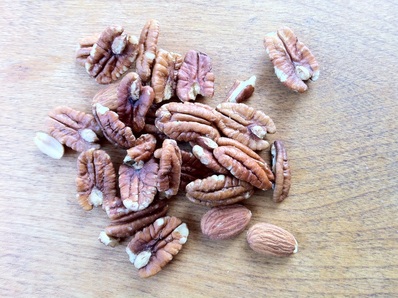

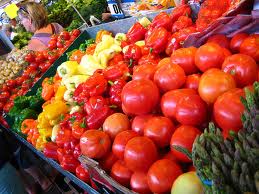
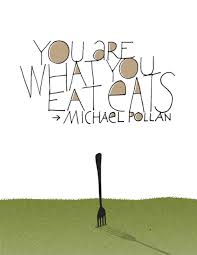
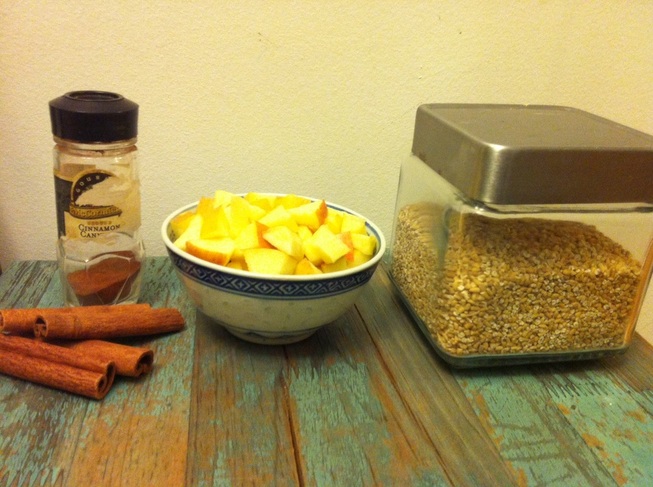



 RSS Feed
RSS Feed